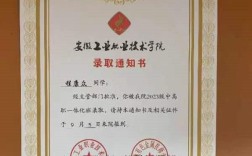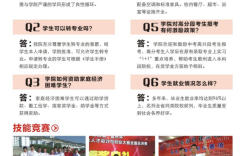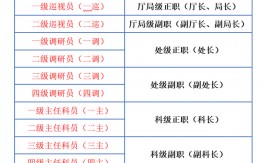英語作文書信格式范文
英語書信的格式通常包括以下幾個(gè)部分:
1. 信頭(Heading):包括發(fā)信人的地址和寫信日期。

2. 稱呼(Salutation):如Dear Mr. Smith, Hello Sarah, etc.
3. 正文(Body):書信的主要內(nèi)容,通常分為幾個(gè)段落。
4. 結(jié)束語(Complimentary Close):結(jié)束語,如Sincerely, Best regards, Yours faithfully, etc.
5. 署名(Signature):發(fā)信人的簽名。
6. 附言(P.S.):如果有需要補(bǔ)充的內(nèi)容,可以在署名后加上P.S.并寫上補(bǔ)充內(nèi)容。
下面是一個(gè)書信格式的范文:
[Your Address]
[City, State, Zip Code]
[Date]
[Recipient's Name]
[Recipient's Address]
[City, State, Zip Code]
Dear [Recipient's Name],
[First Paragraph: Introduction and main idea]
I am writing to you regarding [specific topic or reason for writing]. [Provide details and information about the topic].
[Second Paragraph: Additional information or explanation]
Furthermore, [additional information]. This is important because [reason why it's important]. [More details or examples].
[Third Paragraph: Conclusion or request for action]
I would appreciate it if you could [request or expectation]. I am looking forward to your response at your earliest convenience. Thank you for your time and consideration.
Sincerely,
[Your Name]
P.S. [Additional comment or information if necessary]
請支持50多種語言,可以快速生成獨(dú)特、連貫、引人入勝的段落。它還提供段落重寫、文字總結(jié)、語法檢查、拼寫檢查和抄襲檢查等功能。
2. DeepL Write:這是一個(gè)人工智能驅(qū)動(dòng)的寫作助手,可以幫助用戶糾正語法、優(yōu)化選詞、強(qiáng)化清晰度和風(fēng)格,提升寫作水平。
3. Wordvice AI:提供免費(fèi)的AI智能寫作工具,包括基本的編輯模式和高級功能,支持多種語言,適合研究人員、學(xué)生和專業(yè)人士使用。
4. 筆靈AI寫作:這是一個(gè)面向?qū)I(yè)寫作領(lǐng)域的AI寫作工具,提供英語作文編寫服務(wù),由人工智能模型生成內(nèi)容。
5. HeyFriday:這是一個(gè)智能AI寫作工具,可以快速生成高質(zhì)量原創(chuàng)文章,用戶只需提供想法,F(xiàn)riday AI就能幫你生成、改寫、續(xù)寫出完整的文章。
6. Effidit:由騰訊AI Lab研發(fā)的智能創(chuàng)作助手,提供智能糾錯(cuò)、文本補(bǔ)全、文本改寫、文本擴(kuò)寫等功能,支持通用版和學(xué)術(shù)版兩個(gè)版本。
這些工具可以幫助用戶快速生成英語作文,提高寫作效率。不過,需要注意的是,AI生成的內(nèi)容可能需要進(jìn)一步的人工審核和編輯,以確保質(zhì)量和準(zhǔn)確性。
英文寫作格式范文大全
英文寫作有多種格式,每種格式都有其特定的規(guī)則和結(jié)構(gòu)。以下是一些常見的英文寫作格式及其范文:
1. APA格式(美國心理學(xué)會):常用于社會科學(xué)領(lǐng)域。
- 標(biāo)題頁:標(biāo)題通常位于頁面中央,下方是作者的姓名和機(jī)構(gòu)名稱。
- 正文:通常包括摘要、正文(引言、方法、結(jié)果、討論)、參考文獻(xiàn)和(如果適用)附錄。
- 范文:
Title of the Paper: Italicized
Author's Name
Institution Name
Abstract
In this section, provide a concise summary of the research...
Body of the Paper
Start with an introduction that includes your thesis statement...
References
List all the sources you cited in your paper in alphabetical order...
Appendices
If any, include any additional information that supports your research...
2. MLA格式(現(xiàn)代語言協(xié)會):常用于人文學(xué)科。
- 標(biāo)題頁:標(biāo)題位于頁面頂部,下方是作者的姓名、教師的姓名、課程名稱、日期。
- 正文:包括引言、正文和結(jié)論。
- 范文:
Title of the Paper
Author's Name
Institution Name
Instructor's Name
Course Name
Date
In the first paragraph of your essay, introduce the topic...
The body paragraphs should develop your argument with evidence and analysis...
In conclusion, restate your thesis and summarize your main points...
3. Chicago格式:常用于歷史學(xué)領(lǐng)域。
- 標(biāo)題頁:標(biāo)題位于頁面頂部,下方是作者的姓名。
- 正文:包括引言、正文和結(jié)論。
- 腳注或尾注:用于引用和注釋。
- 范文:
Title of the Paper
Author's Name
Introduction
Provide an overview of the topic and your thesis statement...
Body
Develop your argument with evidence and analysis...
Conclusion
Summarize your findings and restate your thesis...
Notes
Include any necessary notes to explain your sources or provide additional information...
4. Harvard格式:常用于商業(yè)和科學(xué)領(lǐng)域。
- 正文:包括引言、正文和結(jié)論。
- 引用:在正文中使用作者-日期格式,并在文末列出參考文獻(xiàn)。
- 范文:
Title of the Paper
Introduction
Discuss the background and purpose of the research...
Body
Analyze the data and present your findings...
Conclusion
Conclude with the implications of your findings...
References
List all the sources cited in your paper in alphabetical order...
5. IEEE格式:常用于工程和技術(shù)領(lǐng)域。
- 標(biāo)題頁:標(biāo)題位于頁面頂部,下方是作者的姓名和機(jī)構(gòu)名稱。
- 摘要:提供研究的簡短總結(jié)。
- 正文:包括引言、方法、結(jié)果和結(jié)論。
- 參考文獻(xiàn):列出所有引用的文獻(xiàn)。
- 范文:
Title of the Paper
Author's Name
Institution Name
Abstract
Summarize the research and its findings...
Introduction
Provide background information and state the problem...
Body
Describe the methods used, results obtained, and analysis...
Conclusion
Discuss the significance of the findings and future work...
References
List all the sources cited in your paper...
每種格式都有其特定的規(guī)則,包括字體大小、行距、頁邊距、標(biāo)題格式等。在撰寫論文時(shí),應(yīng)并嚴(yán)格遵守其規(guī)則。

 微信掃一掃打賞
微信掃一掃打賞












